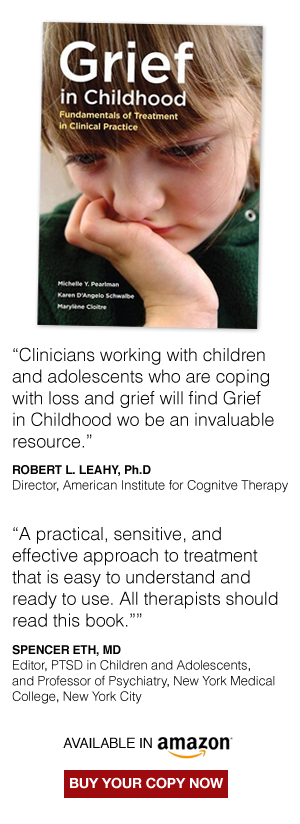Answering children’s questions about death
Given my work with bereaved kids and the recent publication of my book, other moms often ask me about how to talk to their children about death. And the thing is, as much as we all know that death is clearly part of life itself, more often than not we are surprised when our children ask us questions about it… questions we may not be prepared to answer. But the truth is that children do tend to wonder about death (when will it happen? why? how?), and the way in which we as parents answer these questions may help them to clarify this potentially confusing and difficult concept. Some questions come about when the child actually experiences the loss of someone they know, while other times the questions stem from the child’s natural curiosity and a growing understanding of the world around them. For example, my own 4-year-old began to ask a lot of questions when he found out that the dinosaurs died out long ago.
The following guidelines provide some basic tips for parents about children’s understanding of death and loss, and about how to answer their questions.
Children often first start to think about life and death as preschoolers. This makes sense, as this is the age during which all of life’s big questions are often asked. (Why is the sky blue? Who is the fastest person ever? When are you going to die?) Children’s thinking at this age tends to be concrete and focused on the self, so clear and brief answers are better than abstract discussions about heaven or going to a “better place”. (While talking about heaven is not necessarily wrong, I have often found it to lead to more confusion rather reassurance- especially for young children). The most important thing to convey to preschoolers is that they will always be taken care of, and that we as parents will always do everything we can to keep them safe. Children at this age are not able to understand the finality of death and tend to react most to the way in which events impact their daily lives.
By the age of 6 or 7, children are more likely to understand what it means to die and that it is not possible to see or talk to someone who has passed away. As children progress through the school-age years, they are able to think more abstractly about death as a necessary part of the life cycle. Using examples from nature (i.e., bugs, flowers, trees) may be a good way to introduce the idea that all living things have a time to grow and a time to die.
Adolescents are able to think about death in a way that is similar to adults. When experiencing the death of a loved one, pre-teens and teens may think about how this experience makes them different from their peers and how it impacts who they are now and in the future.
Always provide honest and direct answers to your children’s questions. A good rule of thumb is to keep talking as long as the child is talking, and to let the conversation follow the child’s lead regarding how much detail to provide. This is true when talking about death in general or about the specific loss of a loved one. Try not to avoid discussion of death, which might convey that the topic is off-limits and may ultimately lead to increased fear and worry.
Be available to discuss your children’s concerns on more than one occasion, as their interest in and questions about death will change over time.
There is no one right response to death and no correct way to grieve. Reassure your child that it is normal to experience a variety of feelings in response to loss, including anger, guilt, and sadness. Some children find solace by spending time with friends, while others prefer to spend more time alone.
Consider how much detail to provide about death based on your individual child’s age, temperament, and desire for information.

 I am a clinical psychologist living and working in private practice in Rockland County, New York. I am also an adjunct faculty member in the Department of Child and Adolescent Psychiatry at the New York University (NYU) School of Medicine (
I am a clinical psychologist living and working in private practice in Rockland County, New York. I am also an adjunct faculty member in the Department of Child and Adolescent Psychiatry at the New York University (NYU) School of Medicine (
Comments are closed.